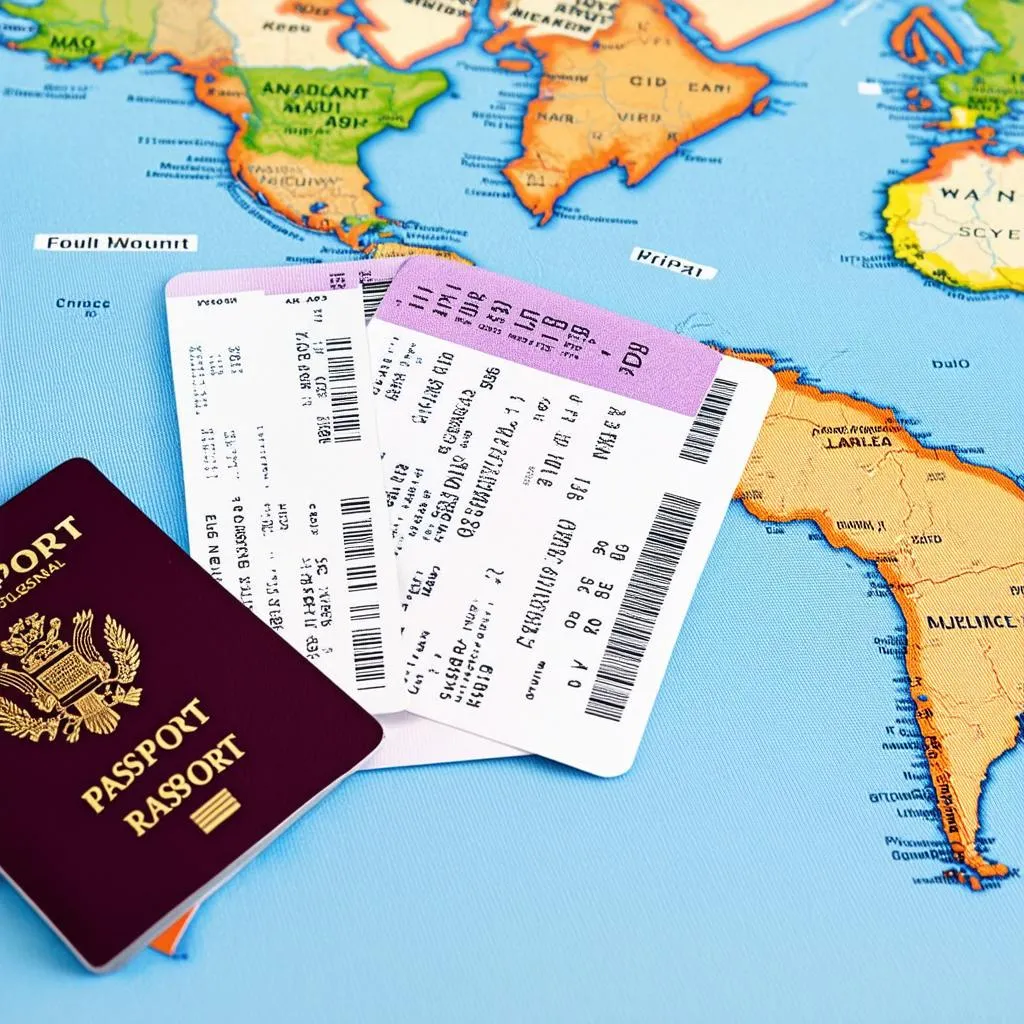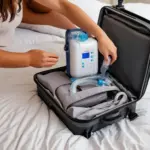Have you ever been daydreaming about a trip to Paris, picturing yourself strolling along the Seine, baguette in hand? Or maybe you envision yourself hiking the Inca Trail to Machu Picchu, the ancient city in the clouds. Before you can turn those dreams into reality, you’ll need to gather the proper documentation, including something called a “travel document.” This essential piece of the puzzle can be confusing, so let’s unpack exactly what it is and why you need one.
Understanding the Basics: More than just a Passport
A travel document is any official identification that verifies your nationality and allows you to enter and exit a country. While many people immediately think of a passport, which is the most common type of travel document, there are actually several others you might need depending on your circumstances.
Different Types of Travel Documents
- Passport: Your passport is your international ID card. It’s issued by your home country and is required for most international travel.
- Visa: A visa is a conditional authorization granted by a country, allowing you to enter and stay within their borders for a specific period. Think of it like a permission slip from that country. You might need one in addition to your passport.
- Passport Card: This wallet-friendly card is a less expensive and more convenient alternative to a passport book, but it’s only valid for travel by land or sea between the United States, Canada, Mexico, the Caribbean, and Bermuda.
- Enhanced Driver’s License (EDL): Similar to a passport card, an EDL allows for travel by land and sea between the U.S., Canada, Mexico, and some Caribbean countries.
- Re-entry Permit: If you’re a U.S. resident but not a citizen, you might need a re-entry permit to return to the U.S. after traveling abroad for an extended period.
When and Why You Need a Travel Document
The type of travel document you’ll need depends on several factors:
- Your citizenship: Your country of citizenship determines which countries you can enter visa-free and which require additional documentation.
- Your destination: Each country has its own entry and exit requirements.
- Purpose of travel: A tourist visa is different from a work visa or a student visa.
 Passport and Boarding Pass
Passport and Boarding Pass
Planning Your Journey: Don’t Get Caught Off Guard
Obtaining the necessary travel documents takes time, so it’s crucial to plan.
How to Obtain Travel Documents
- Passport: You can apply for a passport at your local post office, passport agency, or designated government office. Be prepared to provide proof of citizenship, identity, and pay a fee.
- Visa: Visa requirements vary significantly by country. Contact the embassy or consulate of your destination country well in advance of your trip to understand the application process and any associated fees.
Travel Document Tips:
- Check Expiration Dates: Ensure your passport and any necessary visas are valid for at least six months beyond your intended stay. Some countries have this requirement, so it’s always better to be safe than sorry.
- Make Copies: Keep photocopies of all your travel documents, including your passport, visas, and itinerary. Store them separately from the originals in case of loss or theft.
- Register with Your Embassy: Consider registering your travel plans with your home country’s embassy or consulate in your destination country. This can be particularly helpful in case of emergencies.
 Woman Researching Travel Documents
Woman Researching Travel Documents
Feng Shui and Travel: Inviting Positive Energy on Your Journey
In the realm of Feng Shui, travel is seen as an opportunity for growth and expansion. By incorporating certain principles, you can invite positive energy and ensure a smoother, more fulfilling journey.
- Pack with Intention: Choose a suitcase in a color that represents the energy you want to attract on your trip. For example, red is associated with adventure and excitement, while blue symbolizes tranquility and peace.
- Organize Your Belongings: A well-organized suitcase reflects a clear and focused mind, promoting a sense of calm throughout your travels.
- Carry a Protective Talisman: Consider carrying a small, meaningful object that brings you comfort and protection, such as a lucky charm or a small stone from a favorite place.
FAQs about Travel Documents
Do I need a visa if I’m only transiting through a country?
This depends on the country and the length of your layover. Some countries allow visa-free transit for a limited time, while others require a transit visa even if you’re not leaving the airport.
Can I travel with an expired passport?
No, most countries require your passport to be valid for at least six months beyond your intended stay.
What do I do if I lose my passport while traveling?
Contact your nearest embassy or consulate immediately to report the loss and begin the process of obtaining an emergency travel document.
Explore More Travel Tips and Resources
For more information on travel documents and other essential travel tips, visit TRAVELCAR.edu.vn, your go-to resource for all things travel. Discover a world of information, from visa requirements and passport applications to packing lists and destination guides. Let us help you turn your travel dreams into reality!
Planning a trip? Check out these related articles:
- How Long Does It Take to Get a Travel Document I-131?
- What are the Necessary Documents Needed to Travel Abroad?
Safe travels!

